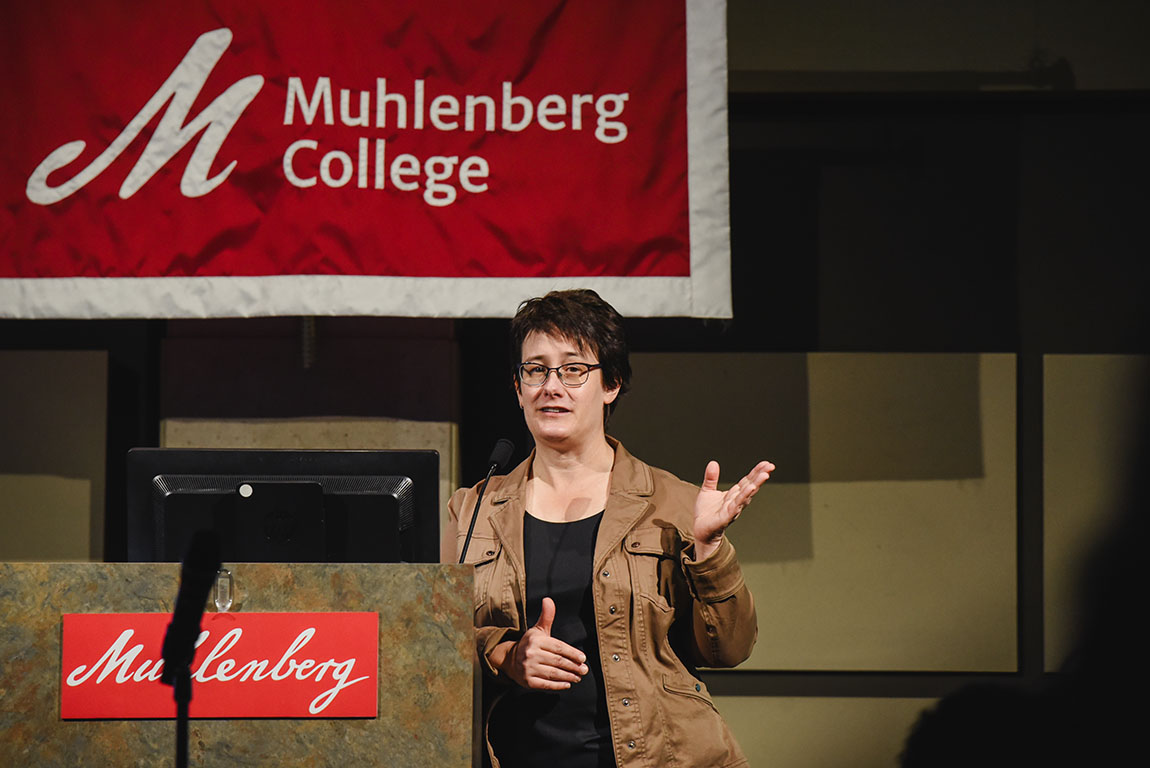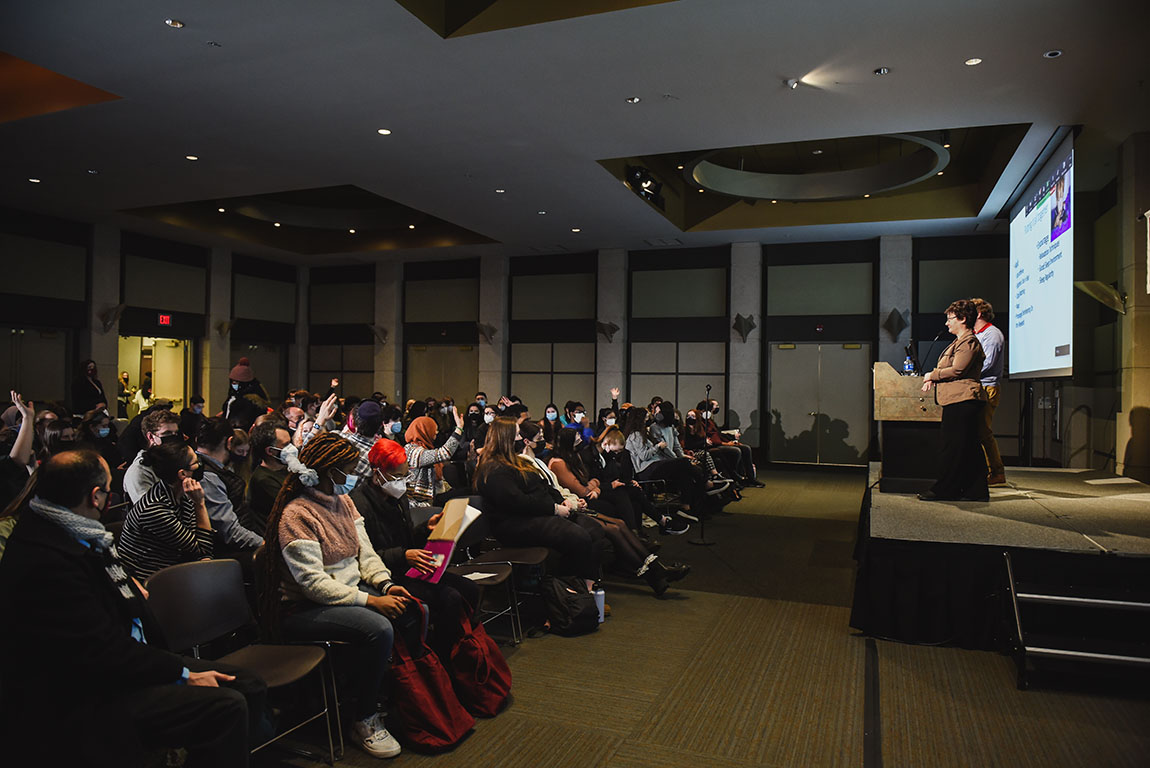Doctor and Neurology Professor Shares Sleep Wisdom on Campus
Dr. Shelley Hershner discussed the importance of logging enough shut-eye and offered tips for the audience during the 2022 Shankweiler Scholars Lecture.By: Grace Oddo ’22 Tuesday, March 8, 2022 02:05 PM
 Dr. Shelley Hershner. Photos by Kristi Morris, Littlewing Photography
Dr. Shelley Hershner. Photos by Kristi Morris, Littlewing PhotographyWhen Dr. Shelley Hershner asked the packed room of Muhlenberg students how many of them feel like they get an insufficient amount of sleep, nearly everyone raised their hands. The room erupted into laughter and chatter. As Hershner waited for the commotion to die down, students remarked to one another “I feel seen,” or, “Why do I feel like she’s talking to me?”
Hershner, who is an associate professor of neurology at the University of Michigan, visited campus on Wednesday to give the second annual Shankweiler Scholars Lecture. Each year, members of this premedical honors program pick a topic related to medicine and society, identify a scholar whose work pertains to that issue and coordinate a time for that scholar to visit Muhlenberg. This year’s theme was sleep hygiene.
Hershner’s talk was titled Sleep to Stay Awake, and it was held in Moyer Hall’s Miller Forum. She opened by sharing that, during her time as an undergrad, she got very little sleep.
“My bedtime was, let’s say, around 4 to 5 a.m. each night,” she said. “That’s why I became so interested in sleep hygiene.”
Her talk was associated with the work she does as director of the Collegiate Sleep Disorders Clinic at the University of Michigan. She noted that college students are considered to be the most sleep-deprived group of people, with their bedtimes averaging between midnight and 2 a.m.
“You need at least seven hours of sleep to function at your best the next day,” Hershner said. “We’re seeing that most of these students are not getting that.”

She also explained that sleep deprivation can cause heightened levels of anxiety and depression and poor academic performance. “When you’re tired, your amygdala [the brain’s fear processing center] fires off more often,” she explained. Sleep deprivation also has detrimental effects on physical health; it is linked to a higher likelihood of diabetes, high blood pressure and heart problems.
Hershner concluded by pointing out that sleep deprivation is avoidable, and it starts with small adjustments. She suggested that the key to a good night’s sleep is a good sleeping environment—one that is cool, quiet and dark. By exchanging the cell phone for a book (the more boring, the better, she says), people tend to get a much better night’s sleep and wake up feeling more refreshed. She finished by showing the audience a video clip of an alarm clock on wheels: It doesn’t shut off until you get out of bed and retrieve it, she explains.
“It’s totally worth the investment,” she said.
“We decided to bring Dr. Hershner to Muhlenberg because of how relevant the topic of sleep is and her notable accomplishments in the field,” said Rebecca Zickerman ’24, a public health major on the premedical track and Shankweiler Scholar. “I know that I, and several other students, will pay more attention to our sleep schedules from now on.”
